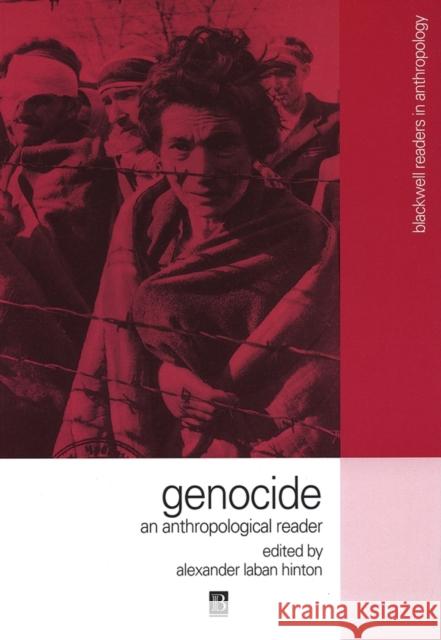Genocide » książka



(netto: 205,56 VAT: 5%)
Najniższa cena z 30 dni: 213,63
ok. 30 dni roboczych.
Darmowa dostawa!
Genocide: An Anthropological Reader helps to lay a foundation for a ground-breaking "anthropology of genocide" by gathering together for the first time the seminal texts for learning about and understanding this phenomenon.
"An excellent contribution to the field of genocide studies: lucid, wide–ranging, and accessible; should be a core text in any course on genocide."
Roger W. Smith, The College of William and Mary
"This volume, edited and ably introduced by an important scholar of genocide, is an especially timely and important contribution to a growing field. Essential international documents coupled with an excellent collection of previously published articles attempt to explain genocide and related state violence as the first step towards prevention. This fine book is especially suitable for undergraduate and graduate courses." Carole Nagengast, University of New Mexico
"This Reader will be useful for college teachers and novice administrators. Each contribution examines dramatic and controversial issues of immediate concern. While the collection addresses genocidal disasters, its emphasis is on the differences among them, and the varied interpretations that have been made of their causes and their consequences." Journal of the Royal Anthropological Institute
Acknowledgements. .
Introduction: Genocide and Anthropology: Alexander Laban Hinton.
Part I: Conceptual Foundations.
1. Genocide. ( Raphaël Lemkin).
2. Text of the UN Genocide Convention.
3. Genocide: Its Political Use in the Twentieth Century. (Leo Kuper).
4. Genocide: A Sociological Perspective. (Helen Fein).
5. Eichmann in Jerusalem: A Report on the Banality of Evil. (Hannah Arendt).
6. Modernity and the Holocaust. (Zygmunt Bauman).
Part II: Genocide, History, and Modernity.
7. Victims of Progress. (John H. Bodley).
8. Culture of Terror Space of Death: Roger Casement′s Putumayo Report and the Explanation of Torture. (Michael Taussig).
9. National Socialist Germany. (Eric R. Wolf).
Part III: Manufacturing Difference and "Purification".
10. "Ethnic Cleansing": A Metaphor for Our Time? (Akbhar S. Ahmed).
11. Imagined Communities and Real Victims: Self–Determination and Ethnic Cleansing in Yugoslavia. (Robert M. Hayden).
12. A Head for an Eye: Revenge in the Cambodian Genocide. (Alexander Laban Hinton).
13. Dead Certainty: Ethnic Violence in the Era of Globalization: Arjun Appadurai.
Part IV: Coping and Understanding.
14. Fear as a Way of Life. (Linda Green).
15. The Myth of Global Ethnic Conflict. (John R. Bowen).
16. Speechless Emissaries: Refugees, Humanitarianism, and Dehistoricization. (Liisa H. Malkki).
Appendix: Websites on Genocide.
Index.
Alexander Laban Hinton is Assistant Professor in the Department of Sociology and Anthropology and a faculty fellow in the Center for Global Change and Governance at Rutgers University, Newark. He is the editor of Biocultural Approaches to the Emotions (1999) and Annihilating Difference: The Anthropology of Genocide (2002), an edited collection of new research articles
During the 20th century tens of millions of people were annihilated by genocidal regimes. As we enter the 21st century, we must look back and attempt to comprehend what has been aptly termed the "century of genocide." It is only through such understanding that we can begin to imagine ways of preventing or minimizing future atrocities.
Genocide: An Anthropological Reader lays the foundation for a ground–breaking "anthropology of genocide" by gathering together for the first time the seminal texts for learning about and understanding this phenomenon. While scholars in other fields have conducted excellent analyses of the macrolevel factors facilitating genocide, few have been able to approach genocide from the local perspective. By filling this important niche–pulling together key anthropological and interdisciplinary sources on genocide – Genocide: An Anthropological Reader stands both to make an important contribution to our understanding of genocide and to serve as a valuable resource for readers across a wide variety of fields.
1997-2026 DolnySlask.com Agencja Internetowa
KrainaKsiazek.PL - Księgarnia Internetowa









